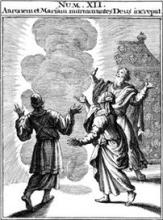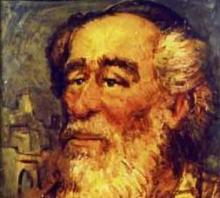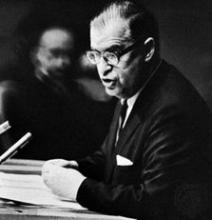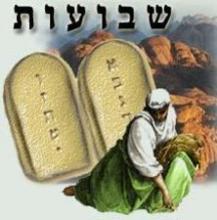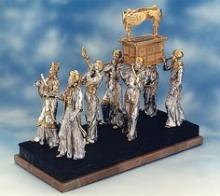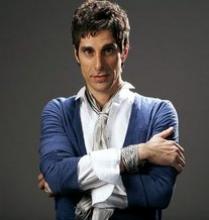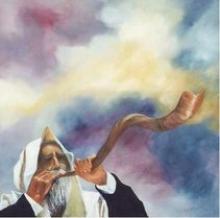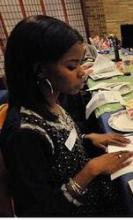Shabbat: Parsha Behaalotecha
Shabbat Shalom and welcome to Judeo Talk. The Torah portion for this week is Parsha Behaalotecha, Numbers 8:1-12:16.
Behaalotecha is one of the darkest parshiot in the entire Torah, full of wrath, suffering and mistrust. At the core of the parsha is a overarching commentary about family, and more specifically how we can all get on the nerves of those we love. Some of the scenes in this portion seem disproportionately harsh or graphic, but even the intense punishments visited on the Israelites have a narrative purpose. In the middle of the parsha, Moses numbers the men of Israel at over 600,000, meaning that an estimated two million people travel with the camp. If the punishments are to have a significant impact on an entire nation, they must be on such a grand scale.
But before the drama begins, Bahaalotecha reiterates the mitzvah of keeping Passover. The reason for this repetition is twofold. First, the parsha addresses what a person is supposed to do should they be incapable of observing the holiday for one reason or another. The solution is rather simple. If an individual has a good reason for not observing Passover (such as ritual impurity or being abroad), that individual is obligated to do all of the requirements of the holiday one month later.
The other reason for a reiteration of the Passover mitzvah is to reveal another mitzvah, that of inviting the stranger to celebrate the holiday as well. Every year at Passover, we read in the Haggadah that we are supposed to invite outsiders into our homes, often interpreted as inviting non-Jews to enjoy the feast with us. The basis for that mitzvah is in this parsha where the people are told to observe Passover even with the stranger. Of all the holidays for a non-Jew to experience, Passover is clearly the best. It is a re-telling of the Exodus on which so much of our religion is based, but it's also an enjoyable and interactive experience with food, drink, songs and games. By revealing Judaism to outsiders as a lively faith based on family, friends and inviting traditions, we can assure them that we're not so foreign and mysterious.
Later in Behaalotecha, the Israelites start complaining again. This time they whine that they never get to eat meat or other fine foods, recalling the plentiful fare of Egypt. Of course, when the Israelites complain, Moses is the one who has to listen to them. After being nagged for meat, Moses cries to God that the burden of leadership is too much for him. He's actually rather dramatic, saying that death would be easier to accept than all this responsibility. God, in turn, is actually rather comical. God literally says that if the people beg for meat, they will have so much of it that they'll eat it until it starts coming out of their noses. The humor ends there, though. The lusting of the Israelites, whether for meat or something else, results in God's wrath spreading fire throughout the camp, then later disease.
In more family-related stories, one of Moses's fathers-in-law (he had several wives) says that he is going to leave the camp to go to his homeland. Moses pleads with him to stay. That story ends abruptly and is followed by a sort of "family court" moment when Miriam and Aaron team up against Moses for marrying a foreign woman. They use that point of contention to bring some jealousy to the surface over God choosing only Moses to be a prophet. In a very interesting moment, God explains that Moses isn't actually a prophet. Under God's definition, a prophet receives divine communication through dreams and visions, while Moses speaks to God directly. In that sense, Moses is more like Abraham. Following this, God essentially plays the role of a parent to these three, disciplining these bickering children who have bigger things to worry about than family squabbles.
Behaalotecha is a really loaded parsha with far too many details to cover in one shabbat. It's like a novel unto itself with all of its drama and layers of metaphor. It's at times like this that we're reminded why we read the Torah, front to back, every single year. There's just too much to talk about. It's a subtle reminder that a year really isn't that long. If the Torah is the Tree of Life, it may even be a reminder that life itself can be too short to do all we have to do.
